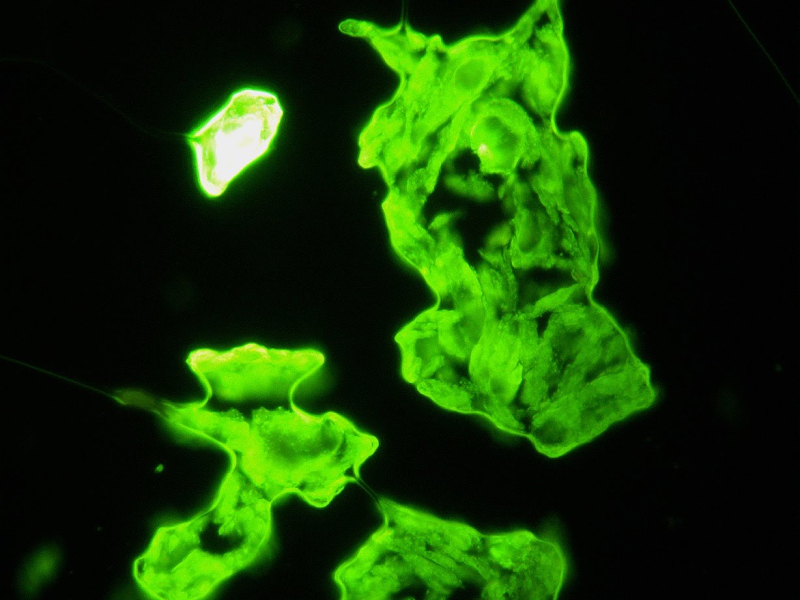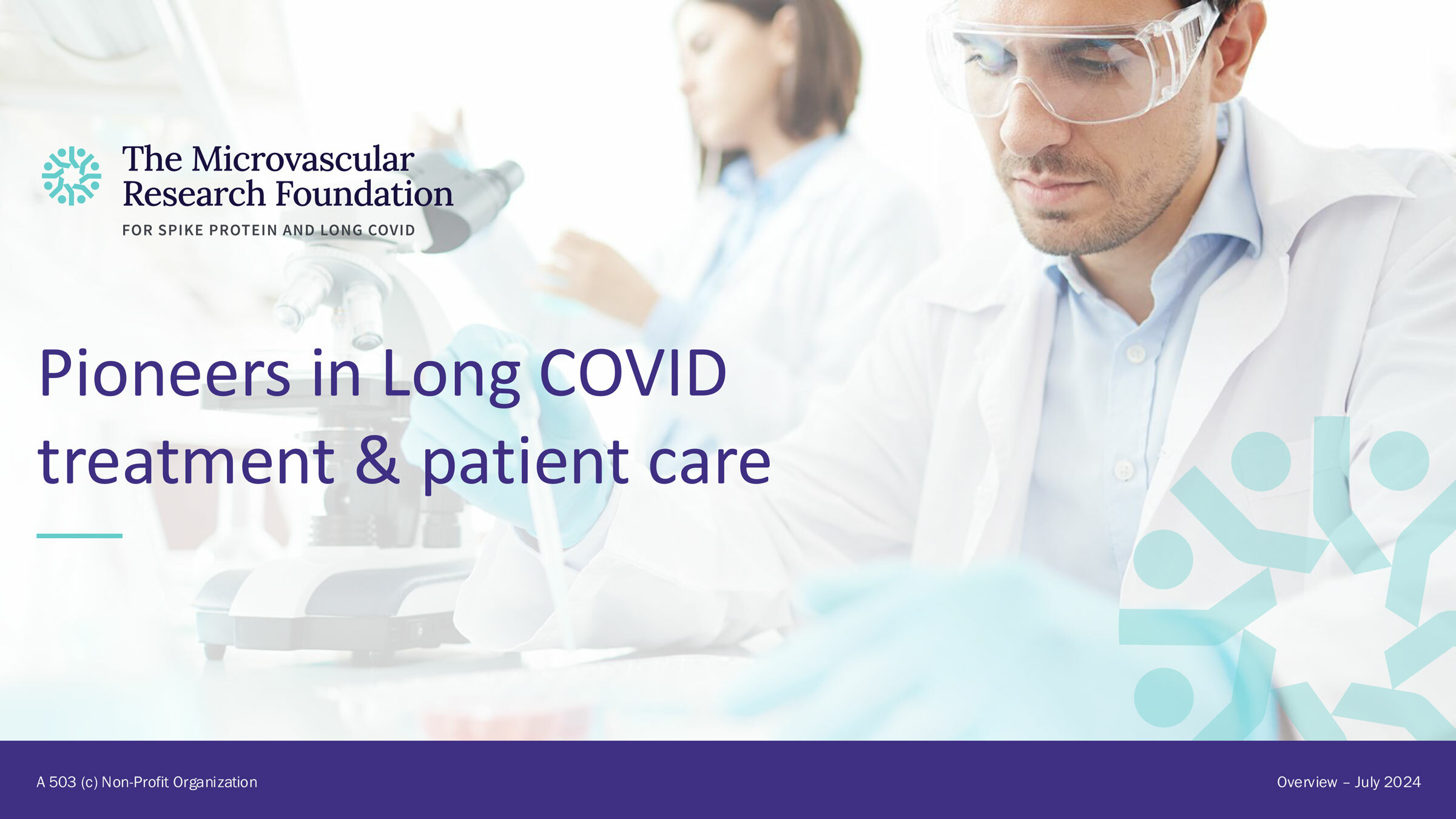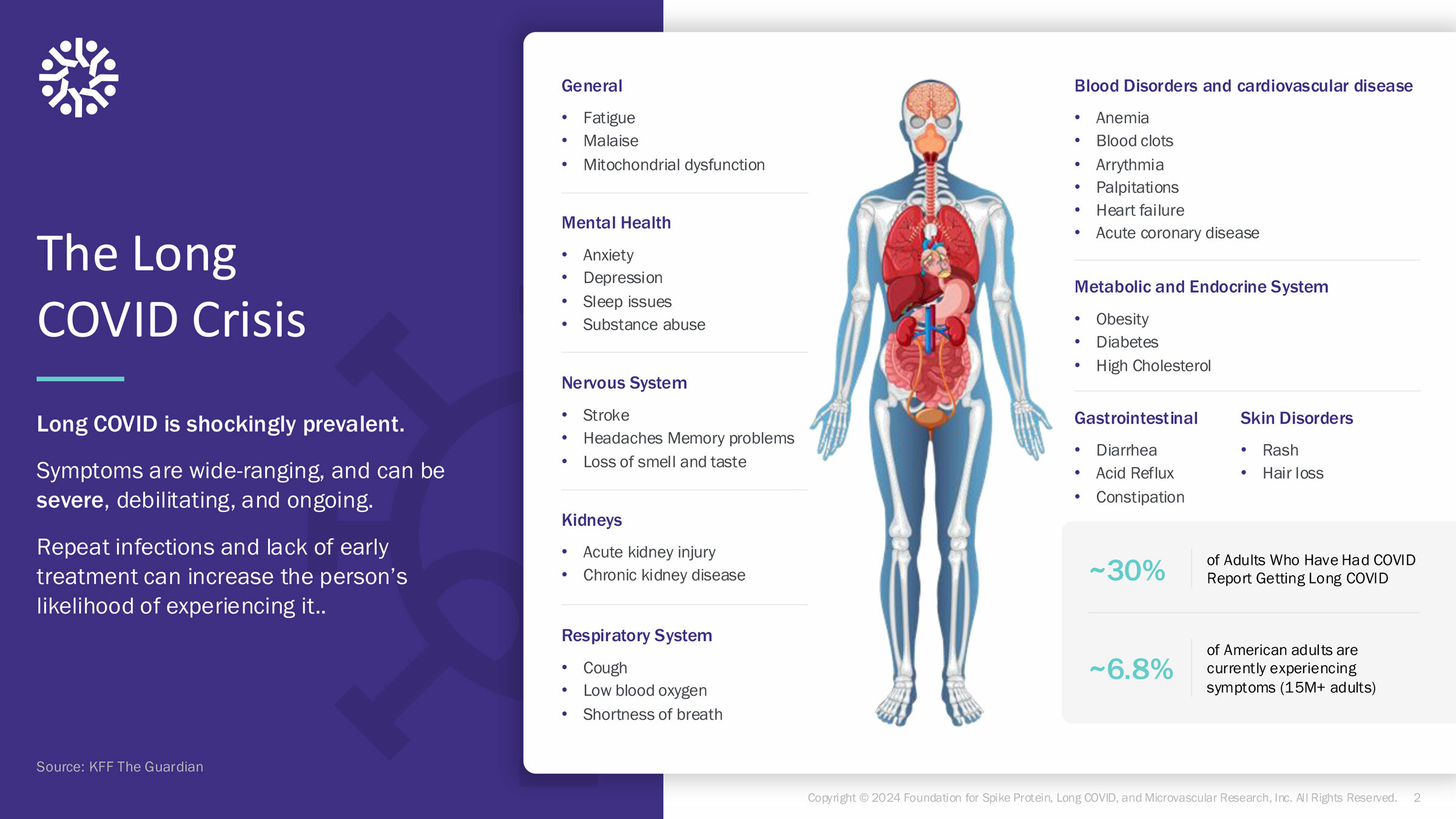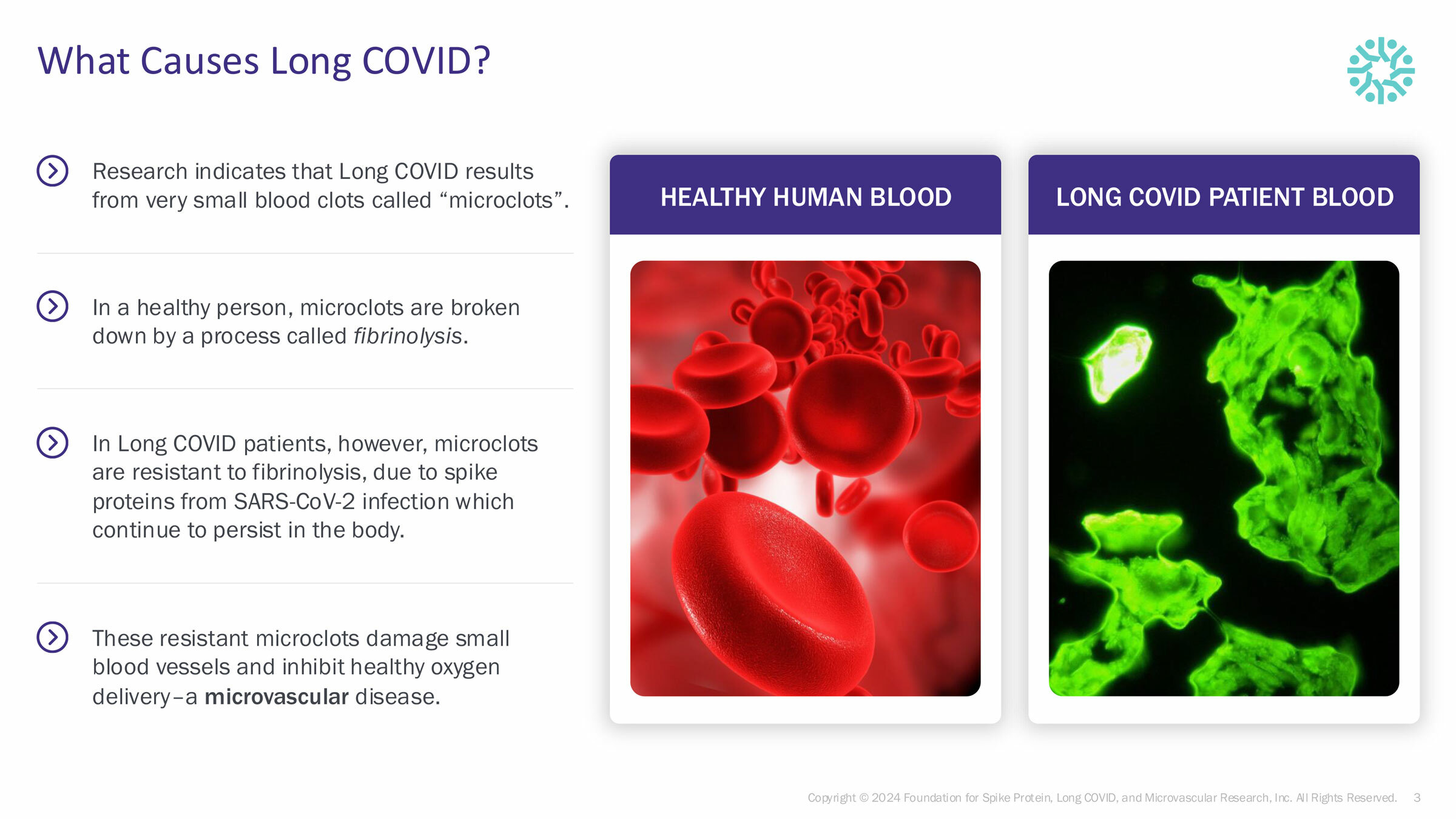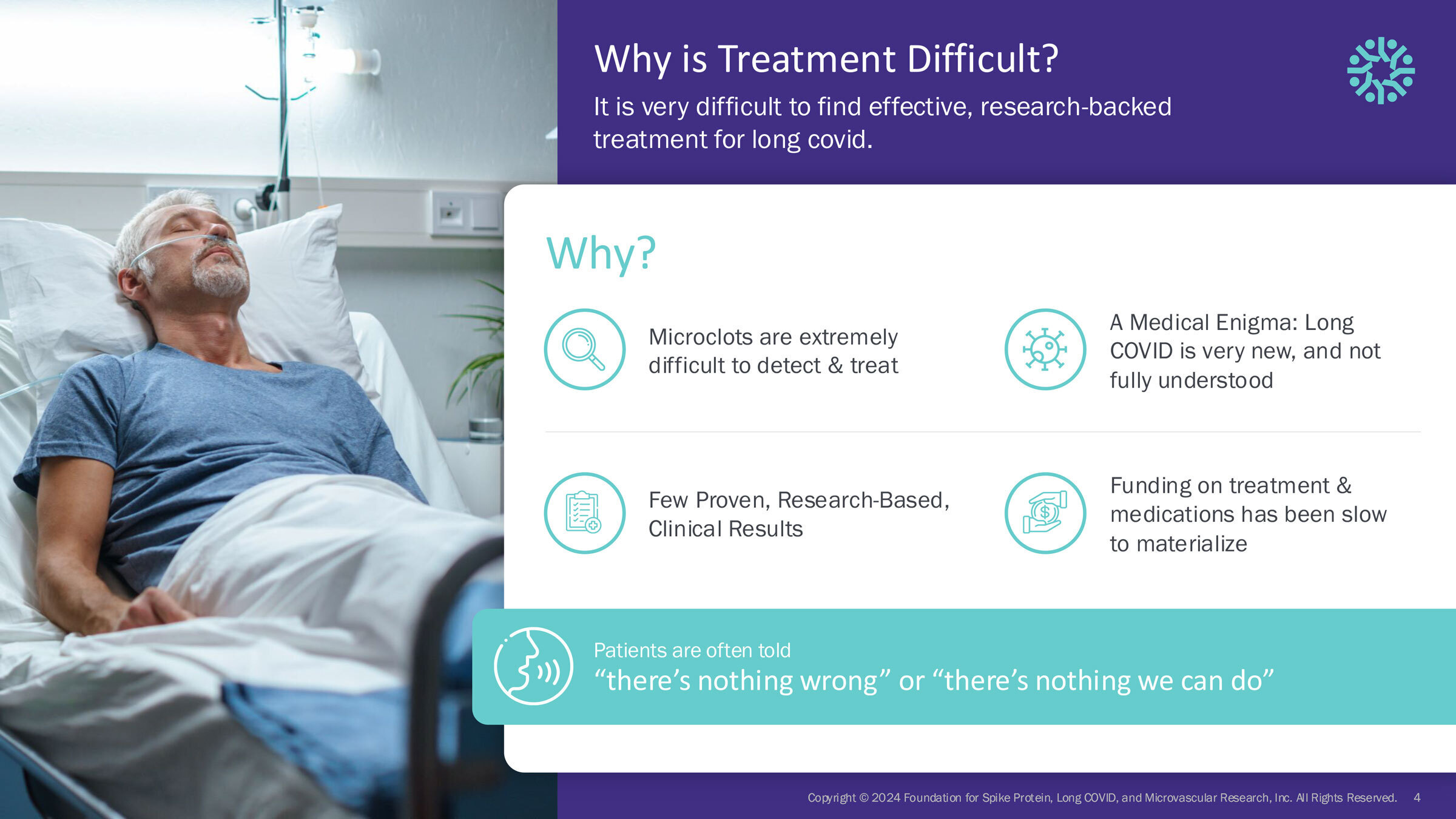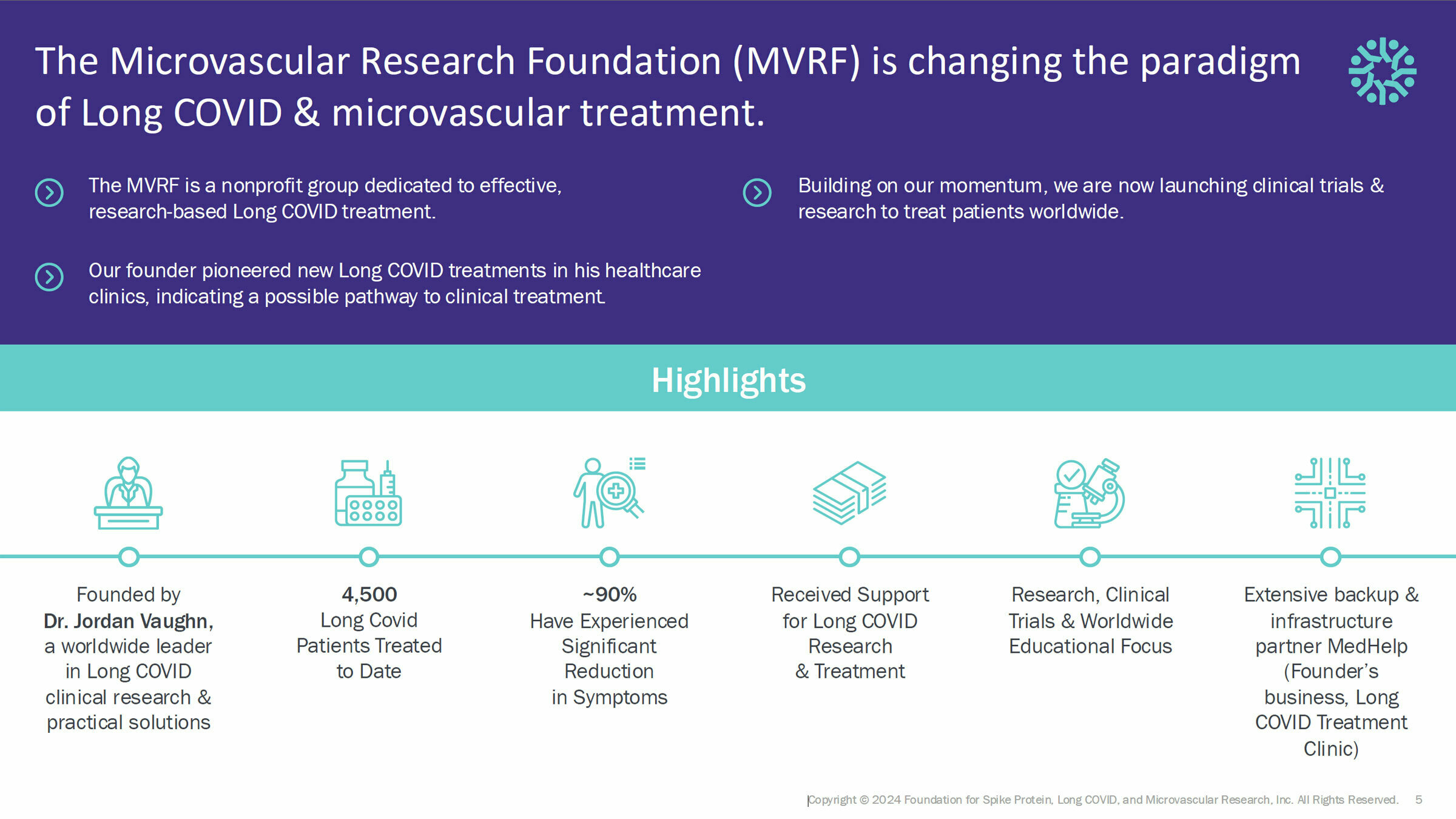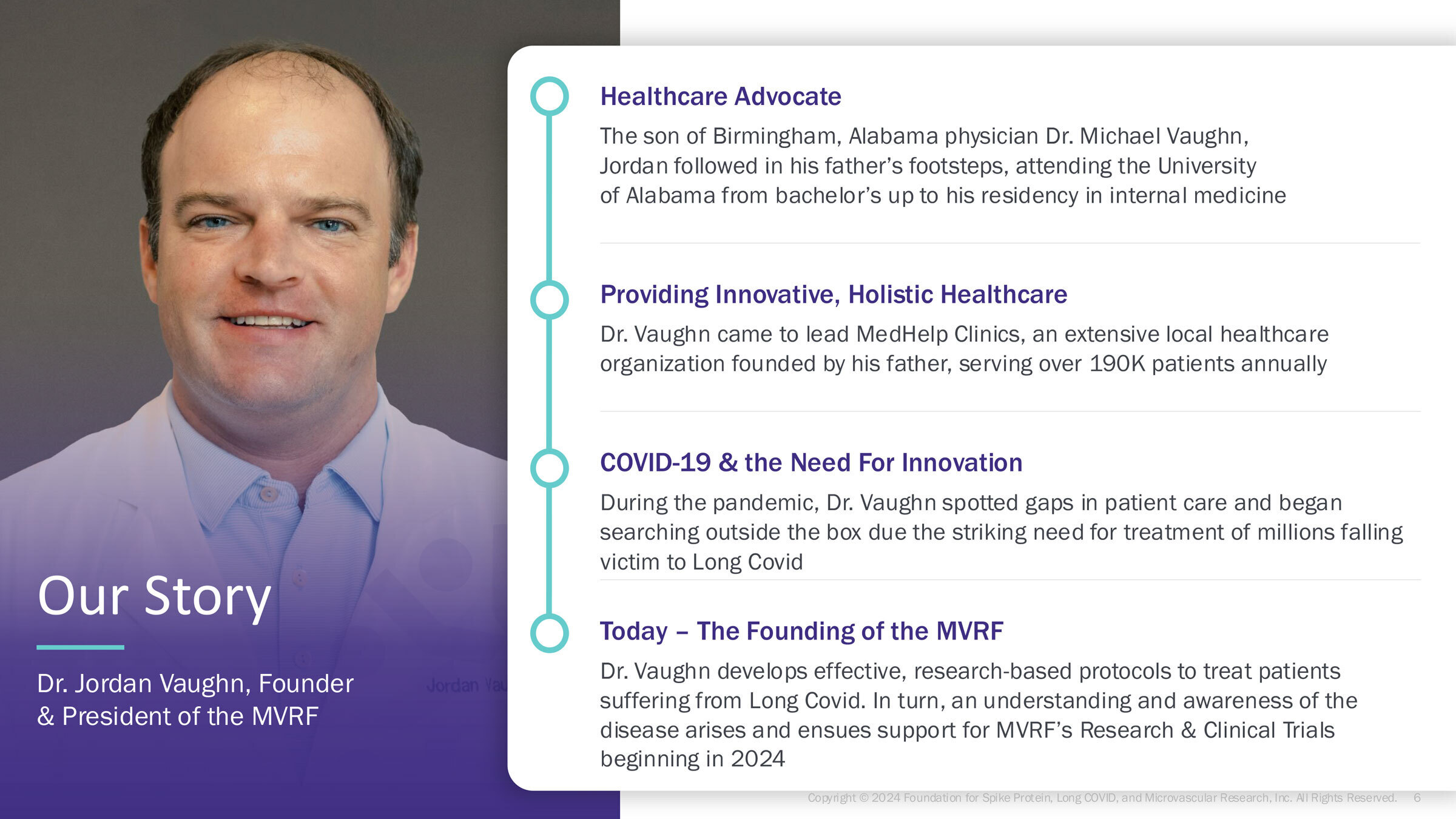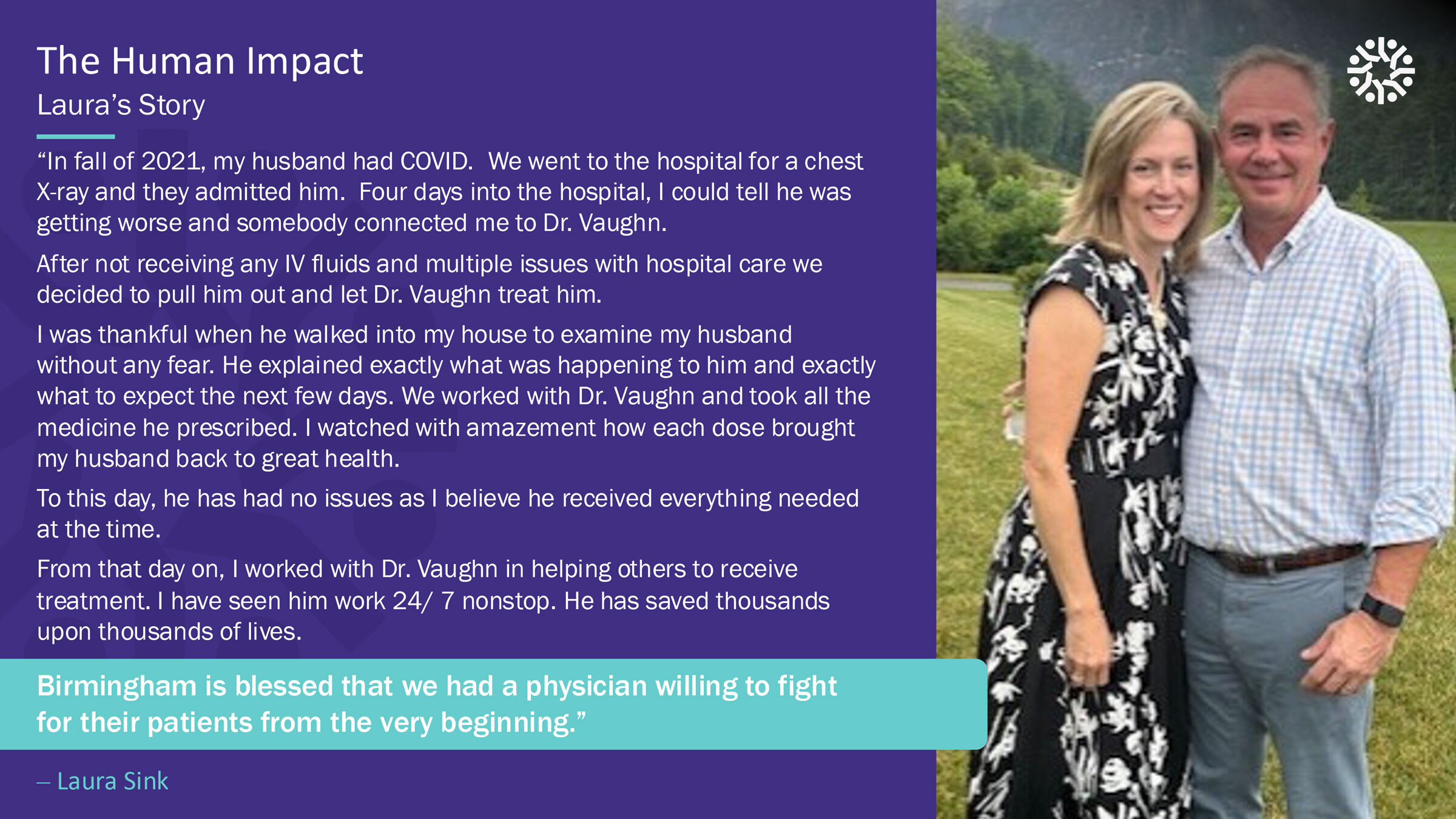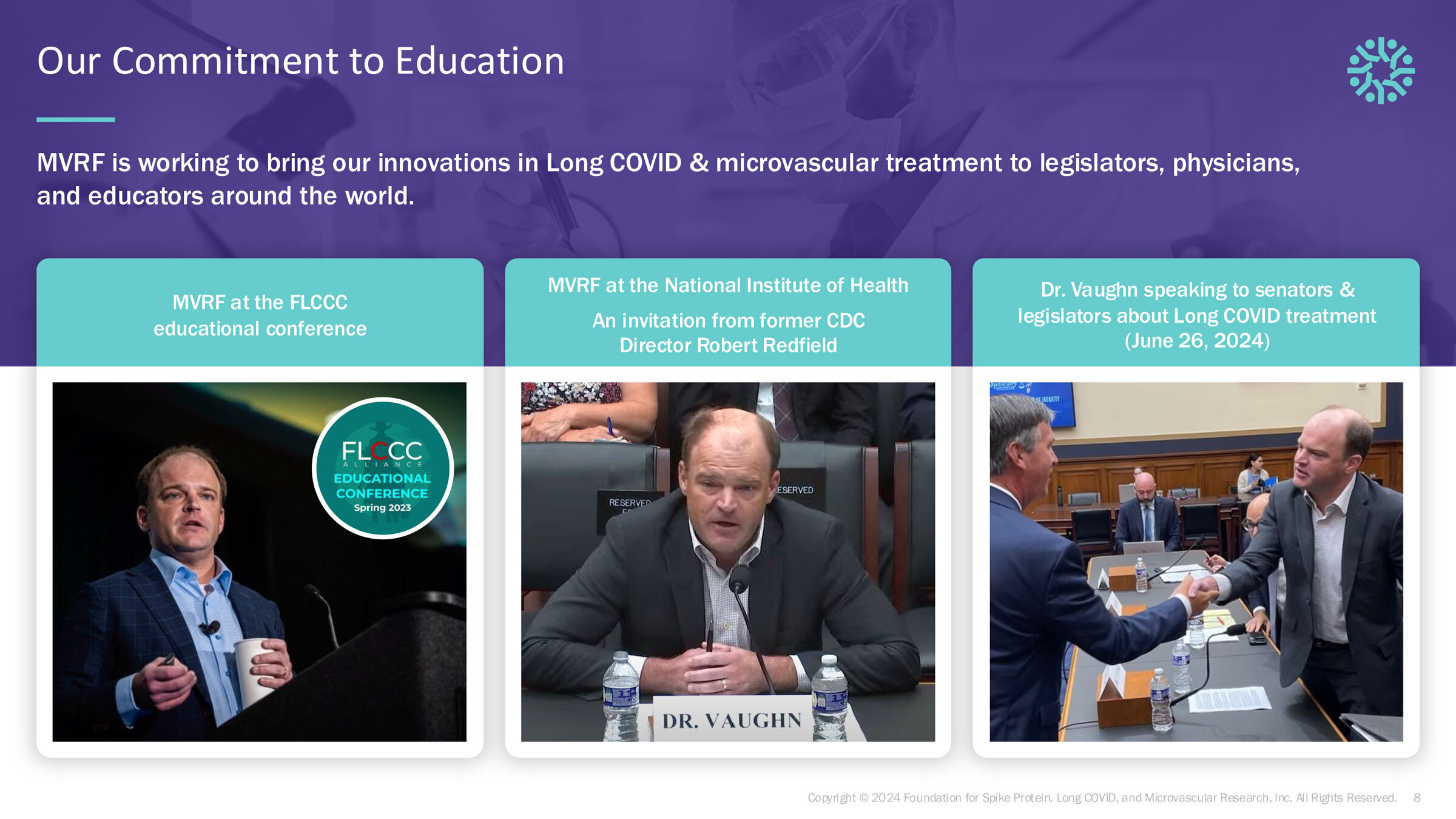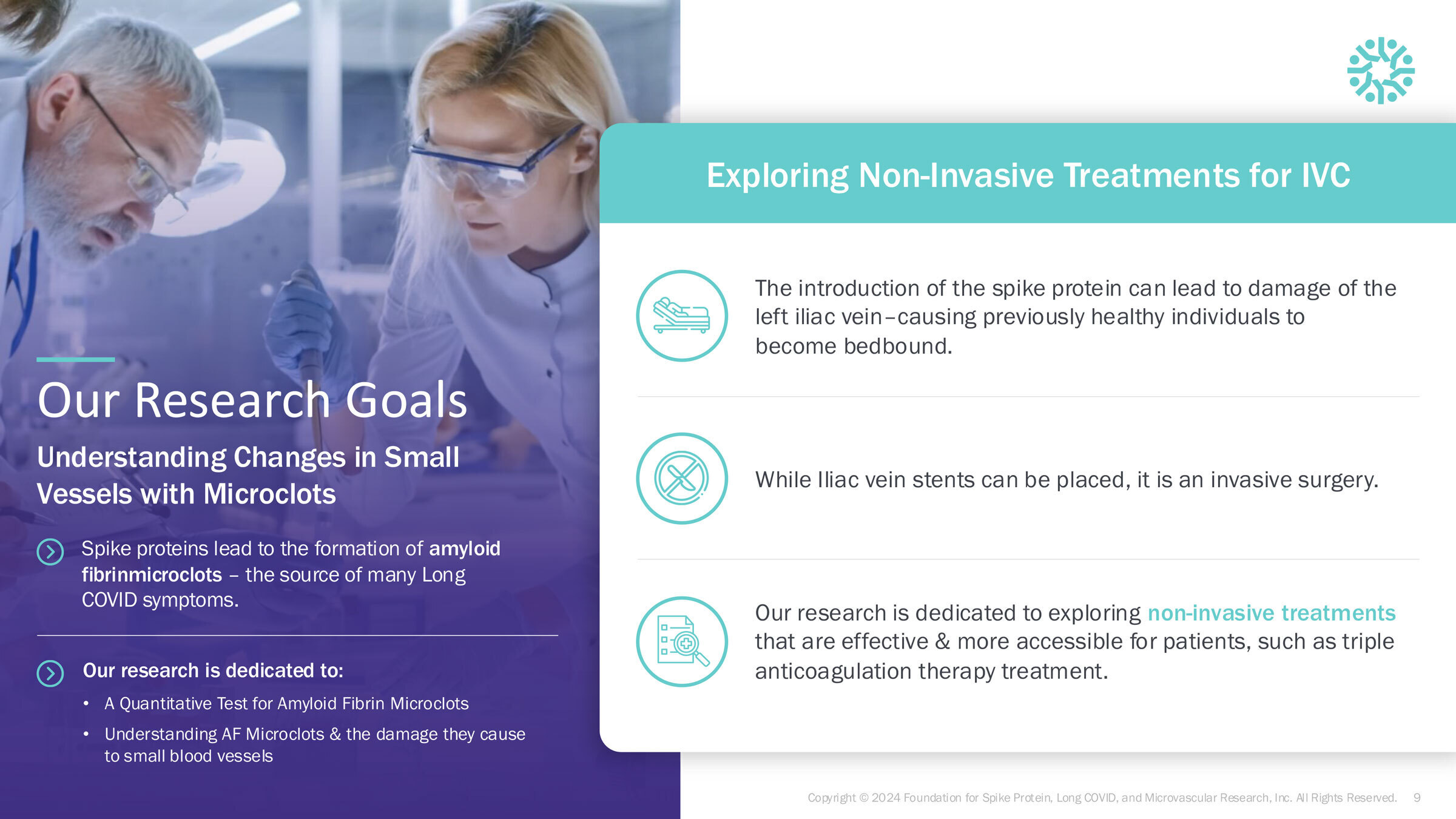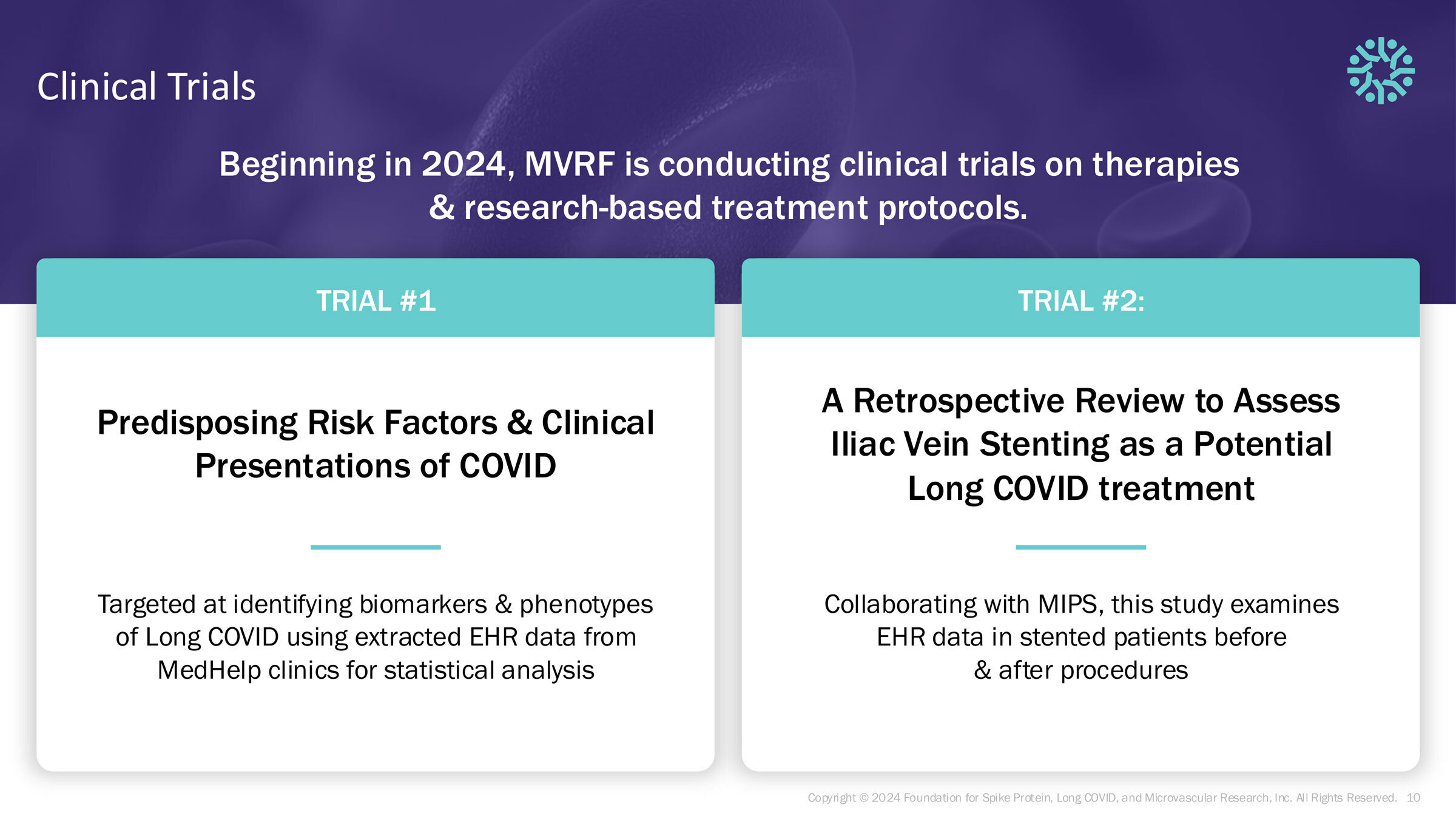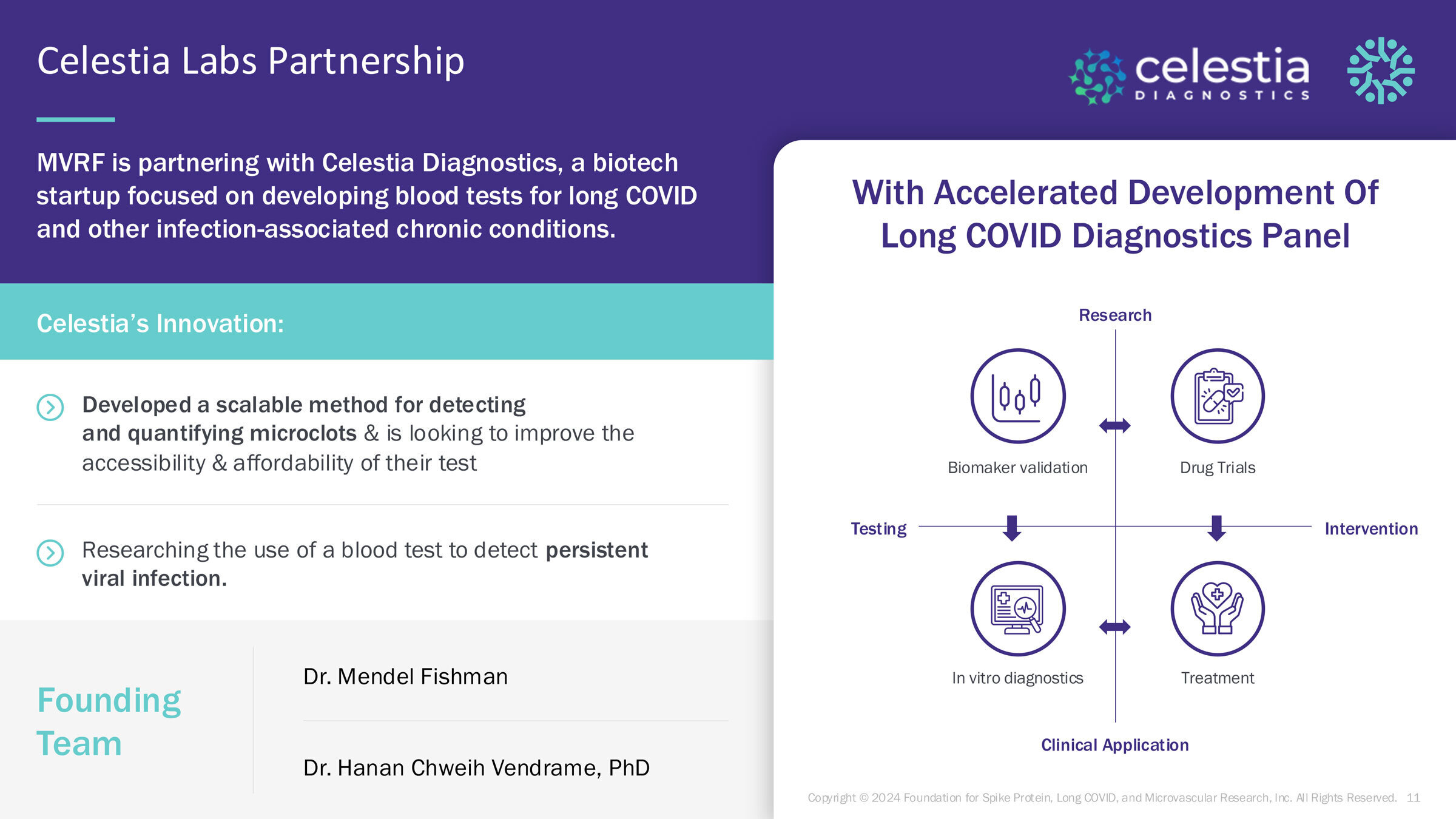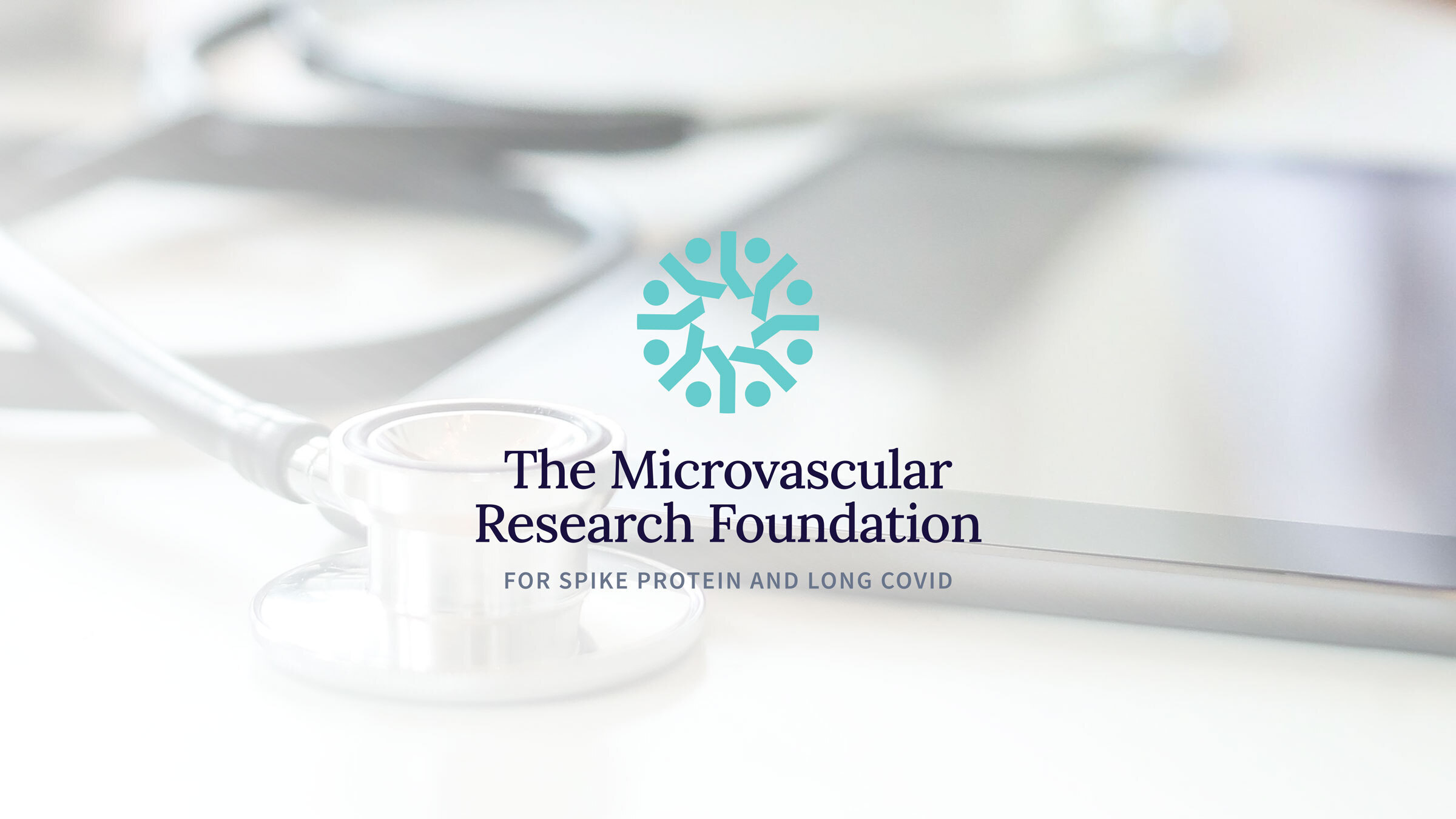Researching pathways to healing.
The Microvascular Research Foundation exists to develop effective, research-based treatment protocols for patients suffering from Long COVID.
The Microvascular Research Foundation
About MVRF
The Microvascular Research Foundation for Spike Protein and Long COVID was established as a Christian nonprofit organization to offer hope and healing for those suffering from Long COVID and vaccine injury and to provide novel solutions and treatments for the numerous diseases that affect the microvasculature.
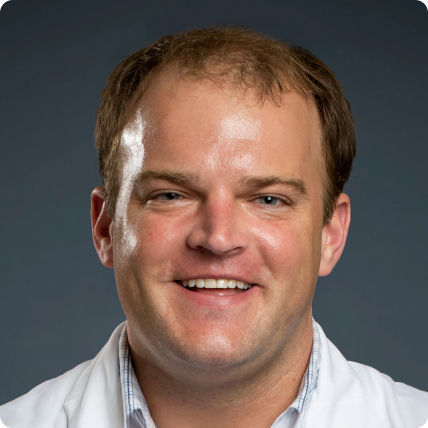
Dr. Jordan Vaughn — Founder & President
Dr. Jordan Vaughn is a physician and clinical researcher based in Birmingham, Alabama. From the earliest days of the COVID-19 pandemic, Dr. Vaughn has been on the front lines of early outpatient treatment. As more patients began to suffer from Long COVID, he has continued to provide individualized care targeted at treating the root cause of Long COVID symptoms.
Dr. Vaughn has coordinated treatment for at least 1,500 Long COVID patients, and nearly 80% have experienced a significant reduction in symptoms. For all of his patients, he is committed to digging deeper and finding new causes so that they can experience healing.
Dr. Jordan Vaughn serves as the President and founder of the Microvascular Research Foundation. He is a Diplomate of the American Board of Internal Medicine.
Our foundation provides a platform for collaboration among a team of global clinical researchers dedicated to understanding and treating this complex disease. The Microvascular Research Foundation boasts the use of immunofluorescent microscopes to research and diagnose the presence of microclots, and ours are the only ones being used in a clinical setting in the United States.
The Microvascular Research Foundation obtained legislative funding in 2023 to support our research and treatment goals. In all of our work, we’re dedicated to advocacy and individualized care for patients suffering from Long COVID symptoms. We’re also committed to supporting and educating healthcare providers as they care for their own patients.
Our Christian Foundation
MVRF was established with Christian values at its core, believing that every individual deserves compassionate care and the opportunity for healing. Our faith guides our commitment to innovative research and patient-centered treatment approaches.
Frequently Asked Questions
What is Long Covid?
Long COVID is defined as lingering symptoms of COVID-19 4 weeks after the initial infection. This may vary from patient to patient but often involves multiple body systems. The most commonly reported symptoms include chronic fatigue, postexertional malaise, brain fog, shortness of breath and other breathing difficulties, heart rhythm abnormalities, and other neurological symptoms.
How do I know if my symptoms are caused by microclots?
The only way to know for sure is to look at your blood plasma through an immunofluorescent microscope. This microscope is capable of 2000x magnification and can detect the presence of amyloid fibrin with immunofluorescent stain.
I’ve been suffering from Long COVID for years. How do I find a doctor who will treat me?
Although most healthcare providers are working hard to provide high-quality patient care, there are few doctors who are educated on Long COVID and equipped to provide treatment. MVRF hopes to expand access to Long COVID treatment through research and education.
What will my donation go towards?
Your donation will directly fund research and clinical trials targeted at healing patients suffering from Long COVID.
What clinical trials are being offered by MVRF?
MVRF is currently planning clinical trials to test Long COVID treatment using triple anticoagulant therapy, nutraceuticals, and supplements to eliminate microclots.
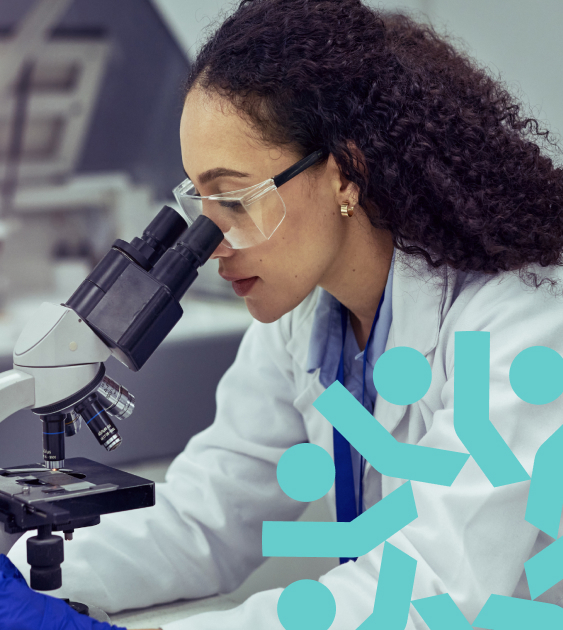
Why we’re here
Since 2020, the medical community at large has been baffled by COVID-19 and Long COVID.
In the absence of guidance, many practitioners find themselves unable to grapple with this complicated new disease. Unfortunately, millions of people are now suffering from lingering, debilitating conditions after exposure to the spike protein.
Long COVID doesn’t discriminate and impacts individuals of all ages, genders, and abilities. Those affected are suffering and desperate for help. Patients are tired of being told by doctors that there’s nothing wrong or nothing they can do.
Compassionate practitioners do exist, but they need expert guidance and support. The goal of the Microvascular Research Foundation is to conduct clinical research to expand access to effective Long COVID treatment and improve patient care.
Our Research Impact
It all begins with microclots. By understanding the damage these microclots cause to small blood vessels, our research has the potential to impact a host of conditions.
Long COVID
Millions of individuals suffer from extensive, debilitating symptoms following exposure to the spike protein, either through viral exposure or vaccination. Microclots can cause a number of symptoms including postexertional malaise, fatigue, brain fog, shortness of breath, heart rhythm abnormalities, and chronic pain. Effective treatments address these symptoms by eliminating these microclots and restoring patients to health.
Iliac Vein Compression
Iliac vein compression isn’t a new or uncommon condition. But when you introduce microclots, this compressed vein becomes compromised. The result? Decreased blood flow that leads to inflammation, additional clots, urinary urgency, chronic pain, POTS, and difficulty walking. Current treatments are effective, but invasive and costly. We’re hoping to find a better way.
Related Microvascular Diseases
Large blood vessels are easy to research and understand. The microvasculature is more challenging. But chronic diseases such as Rheumatoid Arthritis, Type 2 Diabetes, Microvascular Cardiac Disease, Alzheimer’s, and Parkinson’s are also impacted by changes in small blood vessels due to microclots. If we can fight microclots in Long COVID, we can fight them in these diseases as well.
Our Work
Research goal
Understand the changes in small vessels with microclots
When microclots form in the body, they’re typically broken down easily and removed from the bloodstream. However, when the spike protein is introduced to the blood either through viral infection or vaccination, it causes the formation of amyloid fibrin microclots. These microclots are resistant to fibrinolysis, the body’s normal breakdown process. In some patients, they accumulate, damaging the endothelium in small blood vessels and inhibiting oxygen delivery to the body’s tissues.
These microclots cannot be viewed with a traditional microscope, nor can they always be detected with D-dimer measurements. We are currently working to validate Flow Cytometry as a quantitative test for the amount of amyloid fibrin. Research directed towards understanding these microclots and the damage they cause to the endothelium will inform treatment protocols.
Research goal
Explore non-invasive treatments for IVC
The left iliac vein, which sits underneath the right iliac artery in the pelvis, can become compressed independent of a COVID-19 infection. However, the introduction of the spike protein can lead to damage of the vessel walls that inhibits blood flow to the extremities.
As blood flow slows through this primary vein, it also becomes backed up throughout the smaller surrounding blood vessels. The consequences are far-reaching and can cause previously healthy individuals to become bedbound. Iliac vein stents can be placed, but require surgery and an extended recovery. Through our research, we hope to explore non-invasive treatments that are effective and more accessible to patients.
Clinical Trial
Triple therapy for Long COVID patients
Amyloid fibrin microclots are by nature difficult to remove. However, clinicians have already observed positive outcomes for Long COVID patients through triple anticoagulant therapy that includes the use of repurposed anticoagulant, antiplatelet, and fibrinolytic drugs. Additionally, clinicians believe that the use of nutraceuticals and supplements may also aid in microclot removal.
Our goal is to enroll Long COVID patients in clinical trials to test these treatments and develop proven, research-based treatment protocols.
Partner with us
Support the Microvascular Research Foundation in finding effective treatments for Long COVID and related microvascular diseases. Donate now to help millions regain their health and quality of life, stay informed of our progress, or Contact Us to connect directly with our team.
Treatment Impact
Since 2020 our physicians and researchers have been treating patients with a wide range of acute and long term conditions related to Long COVID and Spike Protein Injury.
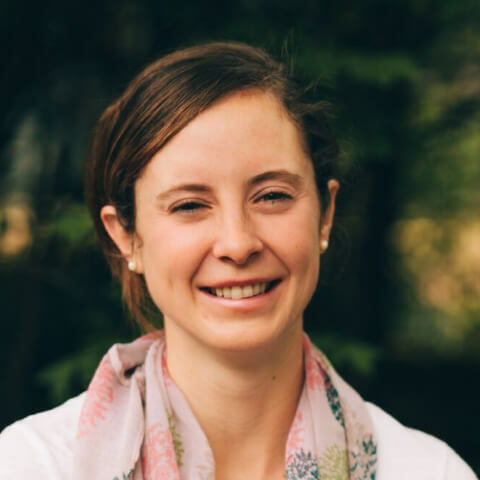
Hannah Bourgeois
I had a mild COVID-19 infection in March 2020 and recovered after a few days, but I soon began to develop debilitating Long COVID symptoms. I became short of breath, lost my voice and my balance, and began to experience extreme fatigue. My symptoms worsened after a second infection in January 2022; at this point, I was nearly bedridden. I felt like I was losing control of my body, and it was challenging to keep our family of 7 afloat.
I consulted multiple doctors and specialists, and I even went to the Mayo Clinic to seek answers. I tried everything they recommended with no success. I met Dr. Vaughn in August 2022, and he started me on triple therapy. Within days, I felt a difference; within two weeks, I could breathe, speak, and walk normally. I later underwent a procedure to improve blood flow to my legs, and I’m already seeing positive results. These treatments have given me my life back.
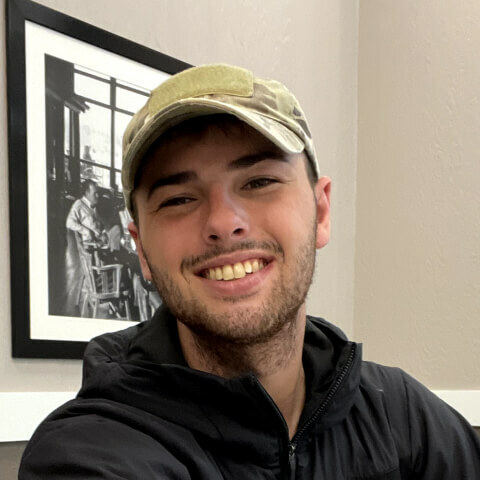
James Riley
I had an asymptomatic case of COVID-19 in March 2021 that I discovered through mandatory testing after returning from a trip. Because of a US Navy requirement, I received the COVID vaccine later that summer. I was in the best shape of my life. But within two months, I began developing pain in my left toe. This pain spread throughout my left leg and was so severe that I was often crawling to get from place to place.
The Navy was unable to do anything for my pain. I tried numerous treatments, including holistic treatments and a form of chemotherapy, but nothing helped. I had an iliac vein stent placed, and within two days, I was able to walk a mile without pain. Although I still have some pain from time to time, it is minor in comparison. I can even go rock climbing now. I feel like I’m making significant strides in getting better.
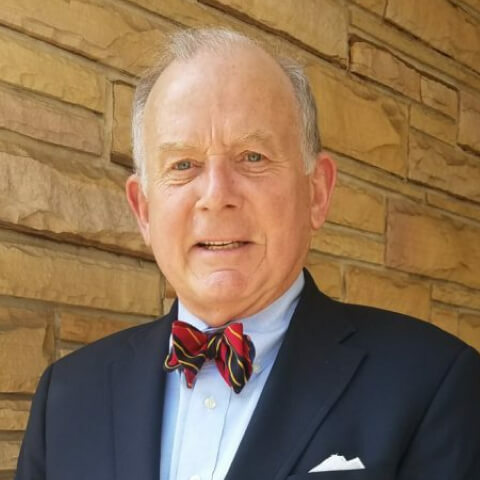
Henry Ray
I have both an autoimmune disease and an inherited blood disorder called thalassemia, which makes it difficult for my body to break down the fibrin in my blood. In 2021, I contracted COVID-19. Although I was able to recover from the acute infection, I needed breathing treatments to improve my breathing.
Dr. Vaughn used his new, immunofluorescent microscope to check my blood for the presence of microclots. He discovered that the spike protein had triggered the formation of microclots, and these clots were preventing my red blood cells from oxygenating my lungs, making it harder for me to breathe. With appropriate medication, this condition has improved significantly. He monitors my progress regularly, and our hope is to eliminate and prevent the formation of future microclots.

Andy Sink
I was infected with the delta variant of COVID-19 in August 2021. I received limited treatment and I was hospitalized on day 8 with acute COVID. My prognosis was dire. I was in the hospital for four days and received the NIH treatment protocol, but it was ineffective. I chose to leave the hospital in stable, but extremely poor, condition. When I left the hospital, I began outpatient treatment using triple anticoagulant therapy as well as other agents with Dr. Vaughn.
My wife says that she watched me come back to life with each dose of the medication. After testing positive for the genetic marker PIA-1, I’ve continued preventive treatment targeted at minimizing further fibrin buildup. Since this treatment, I’ve had no Long COVID-related issues, although I’ve had several subsequent infections. Dr. Vaughn’s team and their proactive, out-of-the-box way of thinking have allowed me to live and thrive today.
Get Involved
Partner with MVRF and be a part of the movement to find pathways for healing Long COVID.



